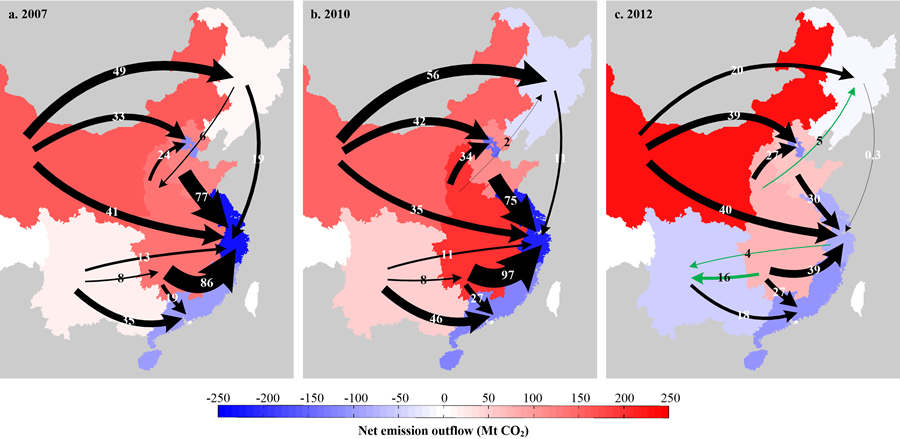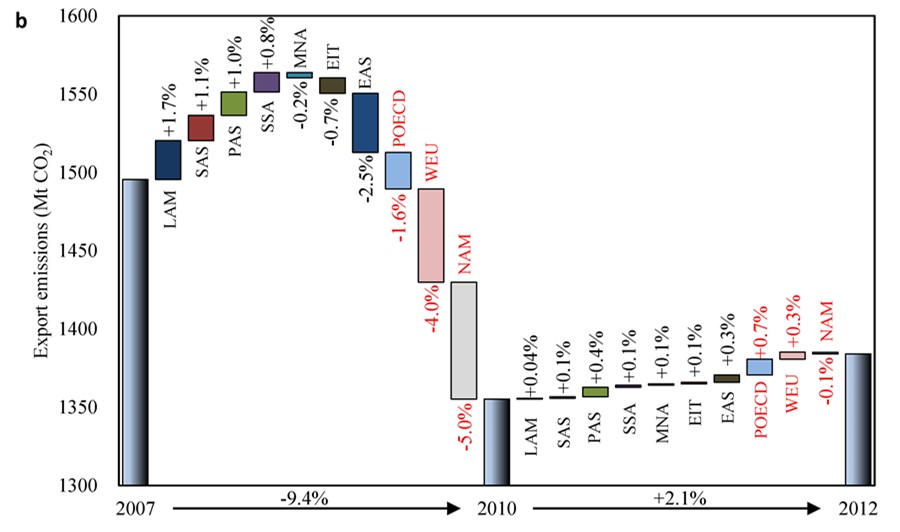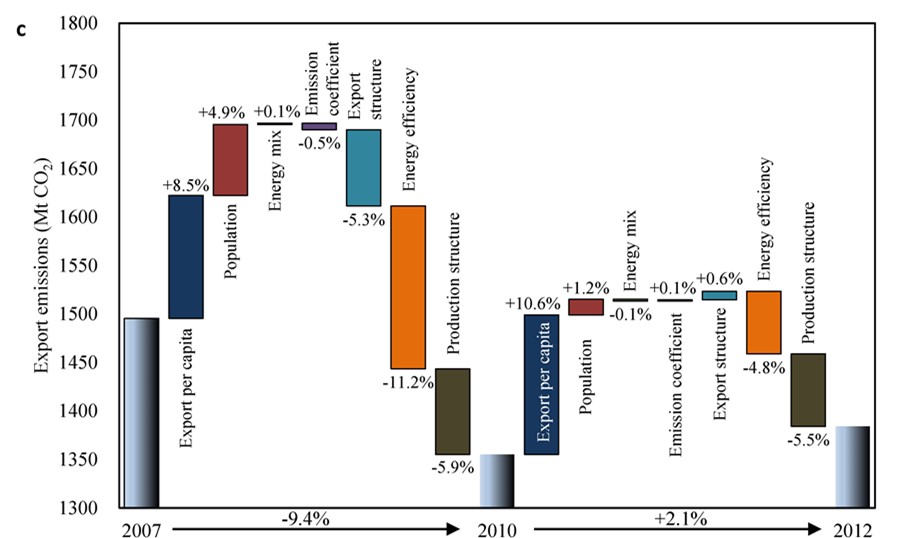"New Model of Regional Carbon Mobility in China", the result of "Study on Comprehensive Assessment Model of the Economic Impacts of Climate Change", a key national R & D project led by Professor Wei Yiming (2016YFA0602600), was recently published in Nature Communications in the form of an article. Since the international financial crisis, China has gradually entered the "new normal" phase of the economy. While its economic growth is declining, it is facing the challenges of major issues such as energy, the environment and climate change. With the promotion of the national systematic reform measures, the pattern of China's social and economic development is gradually changing, and structural changes have taken place in the carbon flows generated by China's domestic trade and international trade. In this context, the project team explored the impact of the shift in China's economic development model on regional carbon flows.
In the domestic carbon flow, the carbon flows from western China to eastern China have dropped sharply.

Among the international carbon flows, the hidden carbon emissions in China's exports have dropped and have shifted from the developed countries to the developing countries.

The fundamental reason for the decline in China's export carbon emissions is the upgrading of China's production structure and the improvement of energy efficiency.

Link:
https://www.nature.com/articles/s41467-017-01820-w
Zhifu Mi, Jing Meng, Dabo Guan, Yuli Shan, Malin Song, Yi-Ming Wei, Zhu Liu, and Klaus Hubacek. Chinese CO2 emission flows have reversed since the global financial crisis. Nature Communications. 2017. DOI: 10.1038/s41467-017-01820-w







